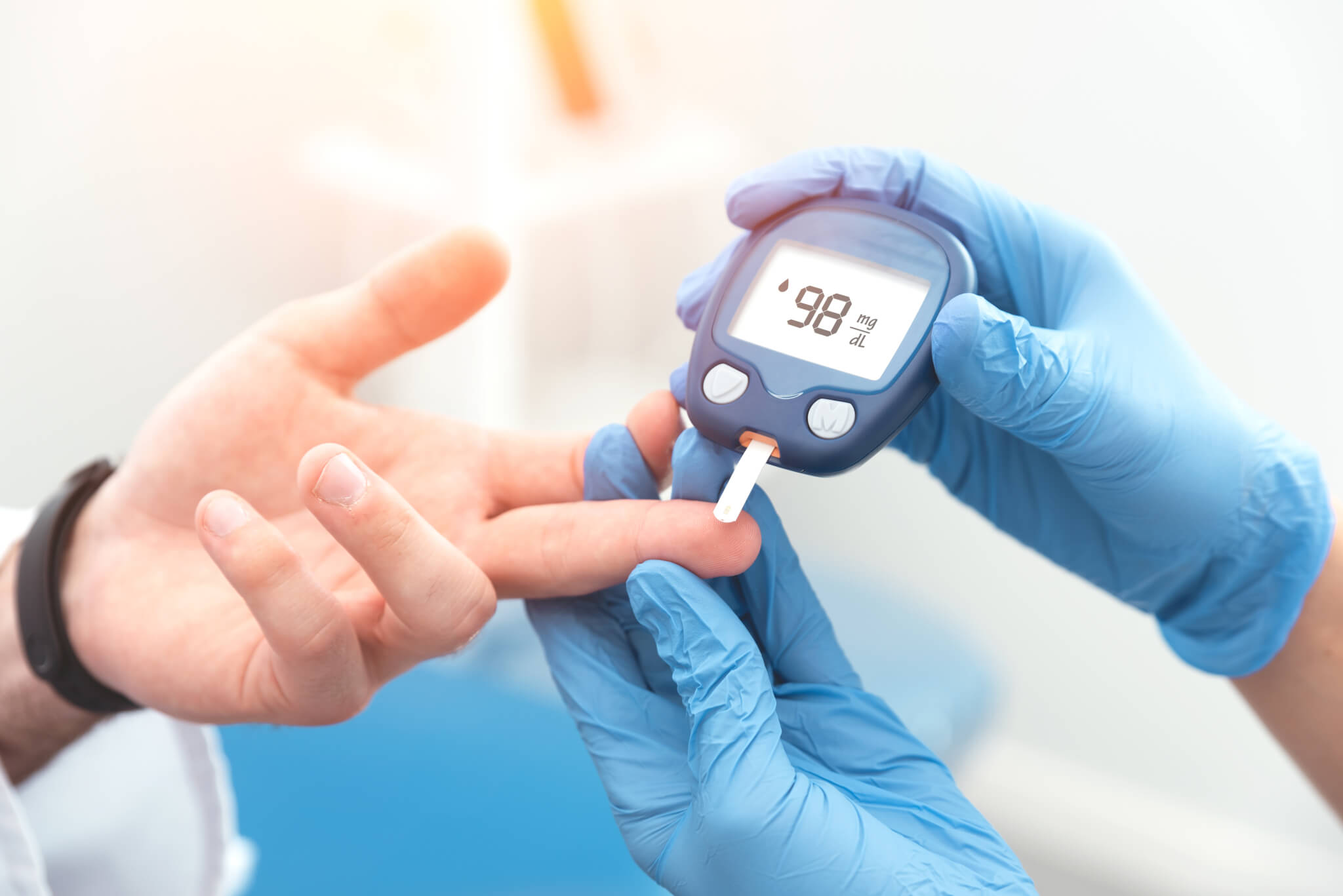Science never takes a break, and as the calendar turns to 2024, StudyFinds is looking back at the past year in research from around the globe. When it comes to health and medical research, scientists worldwide are constantly working on ways to cure diseases and prolong life.
From maximizing your nutrition to discovering genes that trigger debilitating illnesses, these findings may literally add years to people’s lives. Here are the top eight health & medical studies of 2023:
Doctors have been measuring blood pressure all wrong, study explains
If you’re someone with high blood pressure, you’re going to want to sit up for this news. Researchers working with the American Heart Association released the results of a nearly 30-year study on high blood pressure, finding that doctors may miss certain health complications if they don’t have their patients lying down.
Typically, patients are only measured while sitting upright. Now, it should become common practice to do two readings, doctors argue.
“If blood pressure is only measured while people are seated upright, cardiovascular disease risk may be missed if not measured also while they are lying supine on their backs,” says lead study author Duc M. Giao, a researcher and a 4th-year MD student at Harvard Medical School, in a media release.
“Our findings suggest people with known risk factors for heart disease and stroke may benefit from having their blood pressure checked while lying flat on their backs,” Giao adds.

Why do some people get cancer, while others don’t? Scientists have one ‘revolutionary’ explanation
Your risk for cancer may be linked to something deep inside your body. Australian researchers recently established a significant connection between a person’s cancer risk and the functions of circular RNAs (circular genetic fragments) found within our cells. The findings reveal that specific circular RNAs can bind to DNA in our cells, leading to DNA mutations that can cause cancer.
“While environmental and genetic factors have long been believed the major contributors to cancer, this revolutionary finding – which we call ‘ER3D’ (from ‘endogenous RNA directed DNA damage’) – ushers in an entirely new area of medical and molecular biology research,” explains Flinders University Professor Simon Conn, who leads the Circular RNAs in Cancer Laboratory at the Flinders Health and Medical Research Institute, along with his wife, Vanessa.
They discovered that a specific circular RNA was present at significantly higher levels in infants who developed leukemia, even before the onset of symptoms. These findings suggest that the abundance of circular RNA molecules within certain individuals’ cells is a major determining factor in why some individuals develop cancer-causing genes or oncogenes, while others do not.

Taking vitamin D supplements linked to better chance of avoiding heart attacks
Vitamin D is probably most synonymous with the Sun and strong bone health, but a recent study out of Australia found that a regular regimen of vitamin D supplements can also go a long way toward promoting robust heart health. Researchers found that vitamin D supplements may reduce the risk of major cardiovascular events, such as heart attacks, among adults over the age of 60.
The research team studied if supplementing older adults with monthly doses of vitamin D would alter the rate of major cardiovascular events. This D-Health Trial took place between 2014 and 2020 and included 21,315 Australians (ages 60-84). Participants received one capsule of either 60,000 IU vitamin D (10,662 people) or a placebo (10,653 people) to take orally at the beginning of each month for up to five years.
Over the course of the trial, 1,336 participants experienced a major cardiovascular event (6.6% in the placebo group, 6% in the vitamin D group). Meanwhile, the rate of major cardiovascular events was nine percent lower in the vitamin D cohort compared to the placebo group (equivalent to 5.8 fewer events per 1,000 people).

Diabetes discovery: Researchers identify gene that regulates blood sugar after eating
How does our body maintain healthy blood sugar levels? A groundbreaking study of over 55,000 individuals worldwide uncovered key information on what goes wrong when someone is diagnosed with Type 2 diabetes.
The study uncovered 10 new loci (regions of the genome) associated with insulin resistance. Strikingly, eight of these regions were also linked to a higher risk of Type 2 diabetes. Within the identified genetic regions, researchers found a gene related to GLUT4, a critical protein responsible for transporting glucose from the bloodstream into cells after eating. Decreased amounts of GLUT4 in muscle tissue were associated with this genetic variant.
Further investigation using cell lines from mice revealed 14 genes that played a vital role in GLUT4 trafficking and glucose uptake, nine of which had never been linked to insulin regulation before. These genes were found to affect the movement of GLUT4 from inside the cell to its surface, impacting the cell’s ability to remove glucose from the blood.

Bempedoic acid proves just as effective at reducing cholesterol as statins
A recent study suggests that a novel medication, bempedoic acid, is as effective as statins in reducing cholesterol. This development could provide a viable alternative for patients unable to tolerate common cholesterol-lowering drugs.
Approximately 40 million Americans rely on statins to lessen their risk of cardiovascular diseases such as heart attacks and stroke, according to the Cleveland Clinic. However, some users experience significant side-effects including severe muscle and joint pain, headaches, and stomach issues.
The study, involving nearly 14,000 participants, found that individuals taking bempedoic acid experienced a lower risk of significant cardiac events compared to those taking a placebo. The results mirror those seen in patients taking statins, suggesting that different classes of cholesterol drugs may yield similar cardiovascular benefits.

United States ‘experiencing a crisis of early death’
A recent study is revealing the dire state of public health in the United States, especially after COVID. In comparison to other wealthy nations, the U.S. death rate far outpaces America’s peers — leading researchers to say that the country is actually “experiencing a crisis of early death.”
Researchers from the Boston University School of Public Health (BUSPH) found that more than one million U.S. deaths a year — including many young and working-age adults — could be avoided if the country had mortality rates similar to other high-income nations.
The COVID-19 pandemic contributed to a sharp spike in mortality in the U.S. — more so than in other countries — but the new findings show that the number of excess U.S. deaths has actually been accelerating over the last four decades.

Love the heat? Here’s why moving somewhere cold may help you live longer
Florida is a popular retirement spot because of its warm temperatures and sizzling beaches. If you’re looking to live for many years after retirement, however, scientists recommend looking for a more frigid area up north. A recent study found that moderately cold temperatures increase a person’s longevity and decrease susceptibility to age-related diseases. This is because the cold prevents proteins from clumping together.
The findings come from an examination of a non-vertebrate model organism, the nematode Caenorhabditis elegans, and cultivated human cells. Both carried genes for amyotrophic lateral sclerosis (ALS) and Huntington’s disease, two diseases featuring the accumulation of harmful and damaging protein deposits. When German researchers exposed both models to cold, the low temperatures actively removed protein clumps and stopped the further build–up of protein clusters.
In humans, scientists have observed a relationship between body temperature and longevity. The normal human temperature ranges between 97°F to 99°F. Falling below 95 degrees would trigger hypothermia. However, human body temperature can drop to as low as 96.8°F when sleeping. Another study showed that human body temperature has been steadily declining since the Industrial Revolution, a possible factor in the longer life expectancy humans have experienced over the past 160 years.

New form of omega-3 fish oil supplements could prevent blindness from macular degeneration
The world’s leading cause of blindness may be treatable thanks to a new form of omega-3 fish oil. Scientists have created a type of omega-3 fat DHA (docosahexaenoic acid) which protects the eyes. The supplement can cross into the retina from the bloodstream, unlike similar versions of the supplements already available on store shelves.
Study authors believe it could halt age-related macular degeneration (AMD), which affects one in 10 Americans over the age of 50. Researchers believe the supplement may also stop visual decline in patients with diabetes and dementia. Experiments in mice found LPC (lysophospholipid)-DHA reduced Alzheimer’s-like eye problems.
“Increasing the retinal DHA at clinically feasible doses has not been possible until now because of the specificity of the blood–retinal barrier that is incompatible with the specificity of the intestinal barrier,” explains Dr. Sugasini Dhavamani, a research assistant professor in the Department of Medicine at the University of Illinois at Chicago, in a media release. “This study uses the novel approach of dietary LPC-DHA that overcomes both intestinal and blood–retinal barriers and improves retinal function.”

